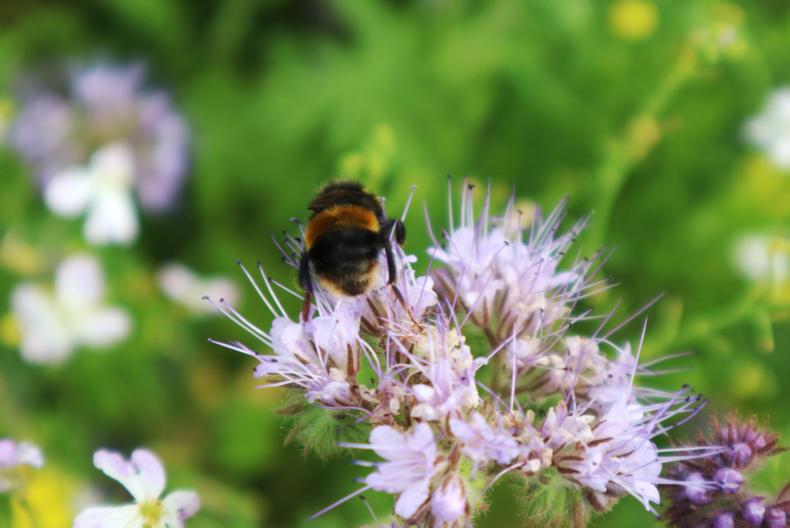Some €120m is being made available to support the EU’s beekeeping sector over the next three years.
This is a €12m increase on the previous three years.
The EU support will be match funded by member states.
Sustainability
"Beekeeping is an important part of the EU agri-food sector, helping to keep jobs in our rural areas,” EU Commissioner for Agriculture Phil Hogan said.
"Bees are also vitally important for the sustainability of our agriculture and for healthy ecosystems."
In 2018, the EU had over 17.5 million hives divided over 600,000 beekeepers
The EU support will apply to national apiculture programmes starting on 1 August 2019 and running until 31 July 2022. These programmes are designed at national level.
Measures include education to beekeepers, support to start a beekeeping business, fighting against parasites damaging hives and research or measures on improving honey quality.
Net importer
In 2018, the EU had over 17.5 million hives divided over 600,000 beekeepers.
Despite being the world's second-largest honey producer, the EU is a net importer of honey, as domestic production only covers around 60% of consumption.
The main supplier of honey imported into the EU is China, followed by Ukraine and countries in Latin America.
In Ireland, there are 25,000 hives. Beekeeper numbers in Ireland are expected to grow from 3,000 to 3,300 by 2022.
Ireland produced 300t of honey in 2018.
Read more
Have you seen the bees?
Beekeeping: pollination more important than honey production
Some €120m is being made available to support the EU’s beekeeping sector over the next three years.
This is a €12m increase on the previous three years.
The EU support will be match funded by member states.
Sustainability
"Beekeeping is an important part of the EU agri-food sector, helping to keep jobs in our rural areas,” EU Commissioner for Agriculture Phil Hogan said.
"Bees are also vitally important for the sustainability of our agriculture and for healthy ecosystems."
In 2018, the EU had over 17.5 million hives divided over 600,000 beekeepers
The EU support will apply to national apiculture programmes starting on 1 August 2019 and running until 31 July 2022. These programmes are designed at national level.
Measures include education to beekeepers, support to start a beekeeping business, fighting against parasites damaging hives and research or measures on improving honey quality.
Net importer
In 2018, the EU had over 17.5 million hives divided over 600,000 beekeepers.
Despite being the world's second-largest honey producer, the EU is a net importer of honey, as domestic production only covers around 60% of consumption.
The main supplier of honey imported into the EU is China, followed by Ukraine and countries in Latin America.
In Ireland, there are 25,000 hives. Beekeeper numbers in Ireland are expected to grow from 3,000 to 3,300 by 2022.
Ireland produced 300t of honey in 2018.
Read more
Have you seen the bees?
Beekeeping: pollination more important than honey production






 This is a subscriber-only article
This is a subscriber-only article










SHARING OPTIONS: